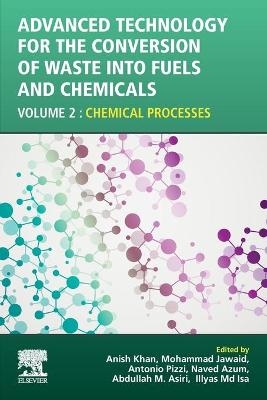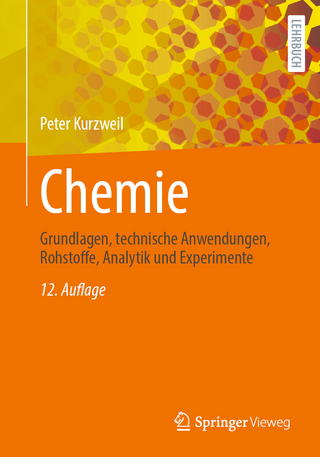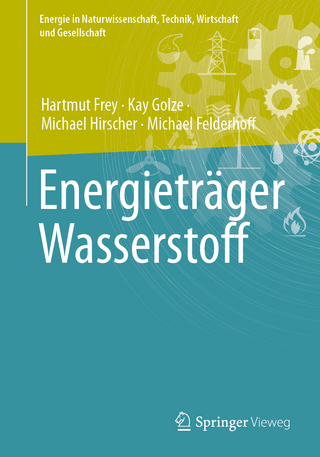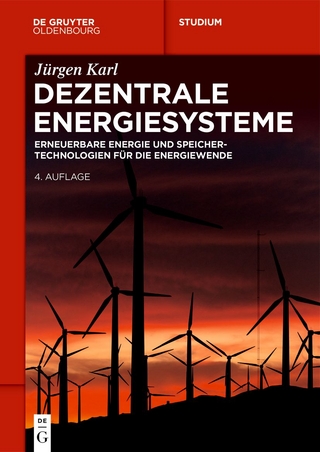
Advanced Technology for the Conversion of Waste into Fuels and Chemicals
Woodhead Publishing (Verlag)
978-0-323-90150-5 (ISBN)
Huge volumes of solid waste are produced globally while, at the same time, huge amounts of energy are produced from fossil fuels. Waste to energy (WTE) technologies are developing rapidly, holding out the potential to make clean, sustainable power from waste material. These WTE procedures incorporate various methods and blended approaches, and present an enormous opportunity for clean, sustainable energy.
Dr. Anish Khan is currently working as Assistant Professor in Chemistry Department, Centre of Excellence for Advanced Materials Research (CEAMR), Faculty of Science, King Abdulaziz University, Jeddah, Saudi Arabia. Completed Ph.D. from Aligarh Muslim University, India in 2010. Completed Postdoctoral from School of Chemical Sciences, University Sains Malaysia (USM) in Electroanalytical chemistry in 2010. Working in the field of synthetic biosensor, polymer composites, organic–inorganic electrically conducting nanocomposites. More than 200 research articles, 70 book chapters 30 books published in referred international publisher and more than 20 international conferences/ workshop. More than 30 research projects completed. Editorial board member of more than 11 international journals. Member of American Nano Society. Dr. Mohammad Jawaid is currently affiliated with the Department of Chemical and Petroleum Engineering at United Arab Emirates University. Previously he was a senior fellow (professor) in the Laboratory of Biocomposites Technology at the Institute of Tropical Forestry and Forest Products (INTROP), Universiti Putra Malaysia. He is an eminent scientist with more than twenty years of teaching, and research experience in composite materials. His research interests include hybrid reinforced/filled polymer composites, and advanced materials such as graphene/ nanoclay/fire retardant, lignocellulosic reinforced/filled polymer composites, and the modification and treatment of lignocellulosic fibres and solid wood, and nanocomposites and nanocellulose fibres. Antonio Pizzi works in LERMAB at the University of Lorraine, Epinal, France. Naved Azum works in the Centre of Excellence for Advanced Materials Research, Chemistry Department, Faculty of Science at King Abdulaziz University, Jeddah, Saudi Arabia Prof. Abdullah M. Asiri is the Head of the Chemistry Department at King Abdulaziz University since October 2009 and he is the founder and the Director of the Center of Excellence for Advanced Materials Research (CEAMR) since 2010 till date. He is the Professor of Organic Photochemistry. His research interest covers color chemistry, synthesis of novel photochromic and thermochromic systems, synthesis of novel coloring matters and dyeing of textiles, materials chemistry, nanochemistry and nanotechnology, polymers and plastics. A major achievement of Prof. Asiri is the discovery of tribochromic compounds, a class of compounds which change from slightly or colorless to deep colored when subjected to small pressure or when grind. This discovery was introduced to the scientific community as a new terminology published by IUPAC in 2000. This discovery was awarded a patent from European Patent office and from UK patent. He is also a member of the Editorial Board of various journals of international repute. He is the Vice- President of Saudi Chemical Society (Western Province Branch). He holds four USA patents, more than 800 Publications in international journals, seven book chapters, and ten books Illyas M.D. Isa works in the Chemistry Department at Universiti Pendidikan Sultan Idris (UPSI, Kuala Lumpur, Malaysia
1. Nanomaterials for the conversion of carbon dioxide into renewable fuels
2. Influence of fuel injection pressure for diesel-waste cooking oil cofuel in a research engine
3. Waste to liquid fuels: potency, progress and challenges
4. Diesel engine performance and emissions with fuels derived from waste tyres
5. Solid oxide fuel cell technology for sustainable development
6. Valorisation of waste tires into fuel and energy
7. Sustainable energy production from food waste: Advanced production strategies and management in the anaerobic digestion process
8. Production of biofuels, bioactive compounds, and fertilizers from fishery waste and wastewater
9. Perspectives and state of the art in producing solar fuels and chemicals from CO2
10. Assessment of the energy recovery potential of waste photovoltaic (PV) modules
11. Advanced vehicle systems and technologies: economic and environmental implications
12. Selective production of light olefins and hydrogen from waste plastics by pyrolysis and in-line transformation
13. Sustainable management of municipal solid waste to fuel: an overview for a better tomorrow
14. Sampling composition for the low heat value evaluation of municipal solid wastes in Brazil
15. Role of polyoxometalates in converting plastic waste into fuel oil
16. Biopolymer-based waste for biomaterials thin film in piezoelectric application
| Erscheinungsdatum | 02.08.2021 |
|---|---|
| Zusatzinfo | 100 illustrations (50 in full color); Illustrations |
| Sprache | englisch |
| Maße | 152 x 229 mm |
| Gewicht | 450 g |
| Themenwelt | Naturwissenschaften ► Chemie ► Technische Chemie |
| Technik | |
| ISBN-10 | 0-323-90150-6 / 0323901506 |
| ISBN-13 | 978-0-323-90150-5 / 9780323901505 |
| Zustand | Neuware |
| Informationen gemäß Produktsicherheitsverordnung (GPSR) | |
| Haben Sie eine Frage zum Produkt? |
aus dem Bereich


